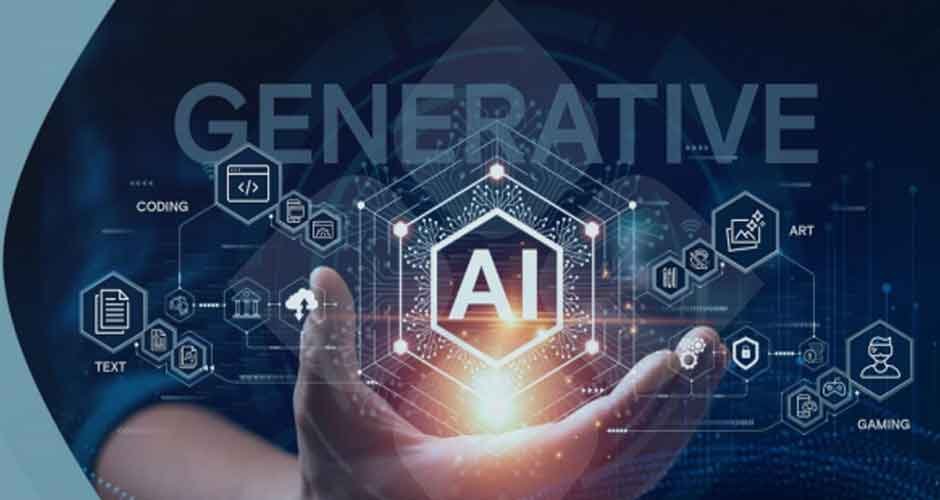Generative Artificial Intelligence (AI) has emerged as a game-changer in the world of technology, revolutionizing various industries and unlocking new realms of creativity. Leveraging sophisticated algorithms and vast amounts of data, generative AI systems have the remarkable ability to create, simulate, and mimic human-like outputs. From generating realistic images and videos to composing music and producing written content, generative AI has opened doors to unprecedented possibilities.
In this article, we let you know what benefits enterprises get by doing Generative AI development across different domains.
Top five benefits of Generative AI for enterprises
Creative Assistance and Inspiration
Generative AI empowers artists, designers, and creative professionals by providing them with new sources of inspiration and assisting in the creative process. By generating novel ideas, designs, and compositions, generative AI sparks creativity, expands creative horizons, and enables the exploration of uncharted territories. It serves as a valuable tool for brainstorming, generating concepts, and overcoming creative blocks.
Automation and Efficiency
Generative AI automates the process of content generation, significantly reducing the time and effort required to produce creative outputs. Whether it’s generating written content, designing visuals, or composing music, generative AI systems can create high-quality content at scale. This automation enables businesses to streamline their workflows, improve productivity, and focus on higher-value tasks that require human expertise.
Personalization and Customization
Generative AI facilitates personalized experiences by tailoring content to individual preferences and needs. By analyzing user data and generating customized recommendations, generative AI enhances user engagement and satisfaction. Personalized marketing campaigns, product recommendations, and content curation can be optimized using generative AI, leading to better customer experiences and increased conversion rates.
Simulation and Prototyping
Generative AI enables the creation of virtual simulations and prototypes, allowing for rapid iteration and testing of ideas. In industries such as architecture, automotive, and manufacturing, generative AI can generate 3D models, simulate physical properties, and optimize designs for efficiency and performance. This accelerates the prototyping phase, reduces costs, and improves the overall product development cycle.
Scientific Advancements and Research
Generative AI contributes to scientific advancements by assisting researchers in data analysis, modeling complex systems, and generating hypotheses. In fields such as drug discovery, genomics, and climate modeling, generative AI algorithms help scientists analyze massive datasets, simulate scenarios, and generate insights that lead to breakthrough discoveries. It expedites research processes, enhances data-driven decision-making, and expands the frontiers of scientific knowledge.
Conclusion
Generative AI has revolutionized the way we create, design, and imagine. Its ability to generate diverse and creative content has enormous potential across various industries. Nevertheless, it is necessary to address the ethical challenges associated with its use is imperative to ensure responsible development and deployment. However, an AI developer at Rejolut says, such concerns can be resolved by striking a balance between innovation and ethical considerations. Further with proper planning we can harness the transformative power of generative AI and shape a future where creativity knows no bounds.






